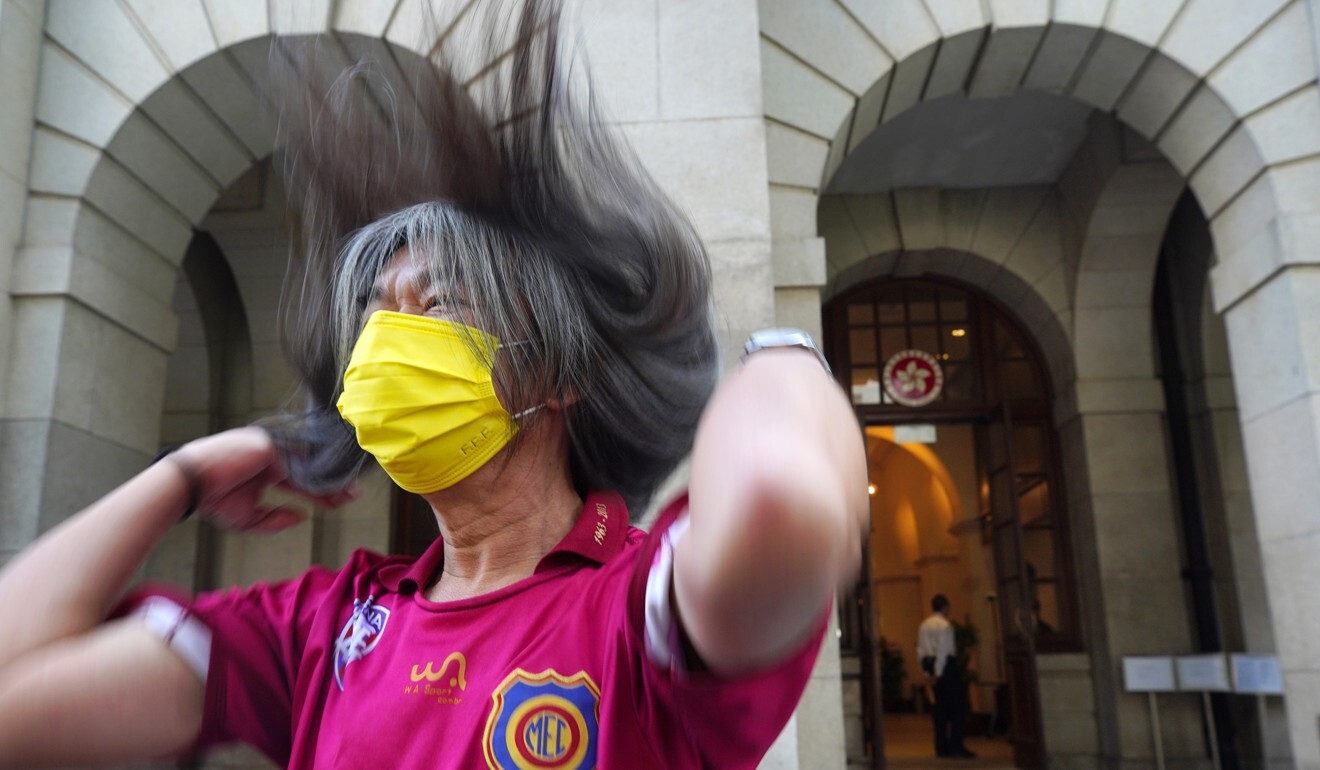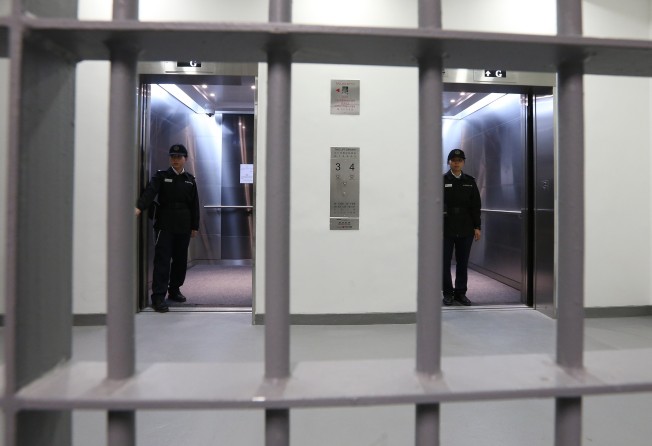
After losing court battle to ex-lawmaker ‘Long Hair’, Hong Kong’s prisons mull shearing locks of female inmates in name of equality
- The haircuts for female prisoners are one option being weighed after a five-judge panel ruled ‘social norms’ not a valid reason for cutting activists’ hair
- Prison insider warns of ‘possible riots’, wave of judicial reviews could follow rules changes

Hong Kong’s 1,400 female inmates could face compulsory haircuts in the wake of last week’s top court ruling that forcing male prisoners to wear their hair short amounted to sex-based discrimination, the Post has learned.
The idea, one of a number of options being studied by the Correctional Services Department (CSD), has sparked strong reactions from women prisoners, while authorities are understood to have prepared for “possible riots” behind bars and more legal challenges if new hair rules are put in place.
Some of the women broke into tears when told about the possible arrangement, a prison insider said, as staff began approaching female inmates to measure their hair length to study how the new policy would affect them.
“We haven’t made a decision on whether they need to cut their hair or how short they need to wear it. But some already cried severely, asking us why they needed to sacrifice their hair because of one man,” the source said, adding the idea was aimed at drawing an equal line between female and male inmates.

The mooted shearing came as five justices of the Court of Final Appeal last Friday sided unanimously with Leung Kwok-hung, nicknamed “Long Hair” for his trademark look, against the CSD.
The former opposition lawmaker’s signature locks were sheared during his brief incarceration in 2014. While women inmates can keep their hair, all male prisoners are required to cut it “sufficiently close for the purposes of health and cleanliness”.
The court gave both Leung and the CSD just over a month to submit their responses on how to frame the policy change now mandated by the ruling.
The Post was told that the department had applied for a suspension order.
Hong Kong had an average prison population of 6,841 over the first nine months of this year, with about 19 per cent female.
Richard Tsoi Yiu-chong of the Society for Community Organisation, which campaigns for prisoners’ rights, said the idea was unreasonable as the court had already cast doubts on the connection between hair style and custodial discipline. He also warned the move could violate the Bill of Rights Ordinance.
“You cannot cut everyone’s hair in the name of gender equality. It is unreasonable,” Tsoi said. “You might avoid gender discrimination but you now touch on human rights. There are special reasons for people to wear long hair, such as religious, habitus or special needs, instead of just personal preference.”
Tsoi quoted the ordinance, which says all persons deprived of their liberty should be treated with humanity and respect. He said the best solution was to let the inmates choose whether they wanted a haircut.
The insider said the authorities would prepare for “possible riots” behind bars and a wave of judicial reviews, as forced hairstyle changes could affect women emotionally, while some foreign inmates could take it as racial discrimination.
“We are caught in the middle of this one. The senior management is trying to find a balanced way out. But every solution could be subject to legal challenge,” the source continued.
In the Legislative Council on Tuesday, Secretary of Security John Lee Ka-chiu was asked by lawmakers how authorities would follow up the top court’s ruling. Lee said the CSD would look into how the ruling affected its daily operations and take the policies of overseas prisons as a reference point.
The insider said the court judgment had been a blow to staff morale, as prison guards have to search every inmate at least three times a day out of security concerns, and long hair could give inmates’ the ability to hide forbidden items, such as razors.
She also cited a 2018 case in the US state of Georgia, where an inmate who had previously killed two prison guards during an escape was later forced to shave his head after a home-made handcuff key was found stashed in his hair.
Last Friday, Chief Justice Geoffrey Ma Tao-li, who took the leading role to write the judgment endorsed by his four colleagues, rejected the CSD’s assertion that hair length was tied closely to custodial discipline.
“It is not readily apparent, and no explanation was provided by the [commissioner of correctional services], as to why this had any reasonable connection with custodial discipline,” he wrote.
Ma noted that the CSD, which argued it was only imposing a social norm, had failed to explain the basis of its claim that men always had shorter hair, an assumption he said gave rise to stereotyping.